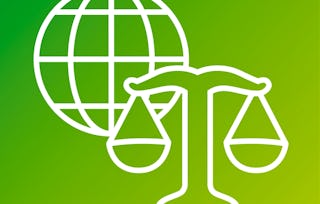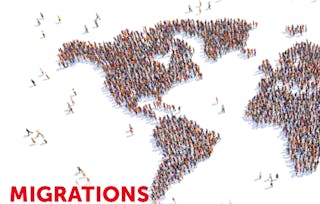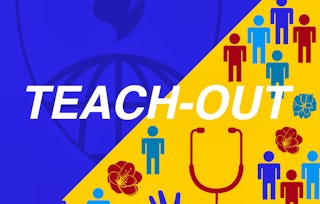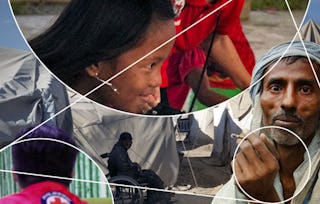Migration to and within Europe poses particular issues related to ensuring equitable access to healthcare. Throughout this course, you will gain insight into the root causes and types of migration, the current evidence and state of data in the region, examples of good practice, and how migration health can be studied and new evidence generated and translated into policy and practice.

Migration, Health and Equity in Europe
Seize the savings! Get 40% off 3 months of Coursera Plus and full access to thousands of courses.

Gain insight into a topic and learn the fundamentals.
Intermediate level
Recommended experience
2 weeks to complete
at 10 hours a week
Flexible schedule
Learn at your own pace
What you'll learn
definitions and legislation surrounding migrants in Europe
misconceptions about migrants' health
priorities and good practices for protecting and promoting the health of migrants in Europe
Details to know

Shareable certificate
Add to your LinkedIn profile
Assessments
23 assignments
Taught in English
See how employees at top companies are mastering in-demand skills

There are 5 modules in this course
Instructors


Offered by
Explore more from Public Health
 Status: Free Trial
Status: Free TrialImperial College London
 Status: Preview
Status: PreviewSciences Po
 Status: Free
Status: FreeJohns Hopkins University
 Status: Preview
Status: PreviewUniversity of Copenhagen
Why people choose Coursera for their career

Felipe M.
Learner since 2018
"To be able to take courses at my own pace and rhythm has been an amazing experience. I can learn whenever it fits my schedule and mood."

Jennifer J.
Learner since 2020
"I directly applied the concepts and skills I learned from my courses to an exciting new project at work."

Larry W.
Learner since 2021
"When I need courses on topics that my university doesn't offer, Coursera is one of the best places to go."

Chaitanya A.
"Learning isn't just about being better at your job: it's so much more than that. Coursera allows me to learn without limits."

Open new doors with Coursera Plus
Unlimited access to 10,000+ world-class courses, hands-on projects, and job-ready certificate programs - all included in your subscription
Advance your career with an online degree
Earn a degree from world-class universities - 100% online
Join over 3,400 global companies that choose Coursera for Business
Upskill your employees to excel in the digital economy



